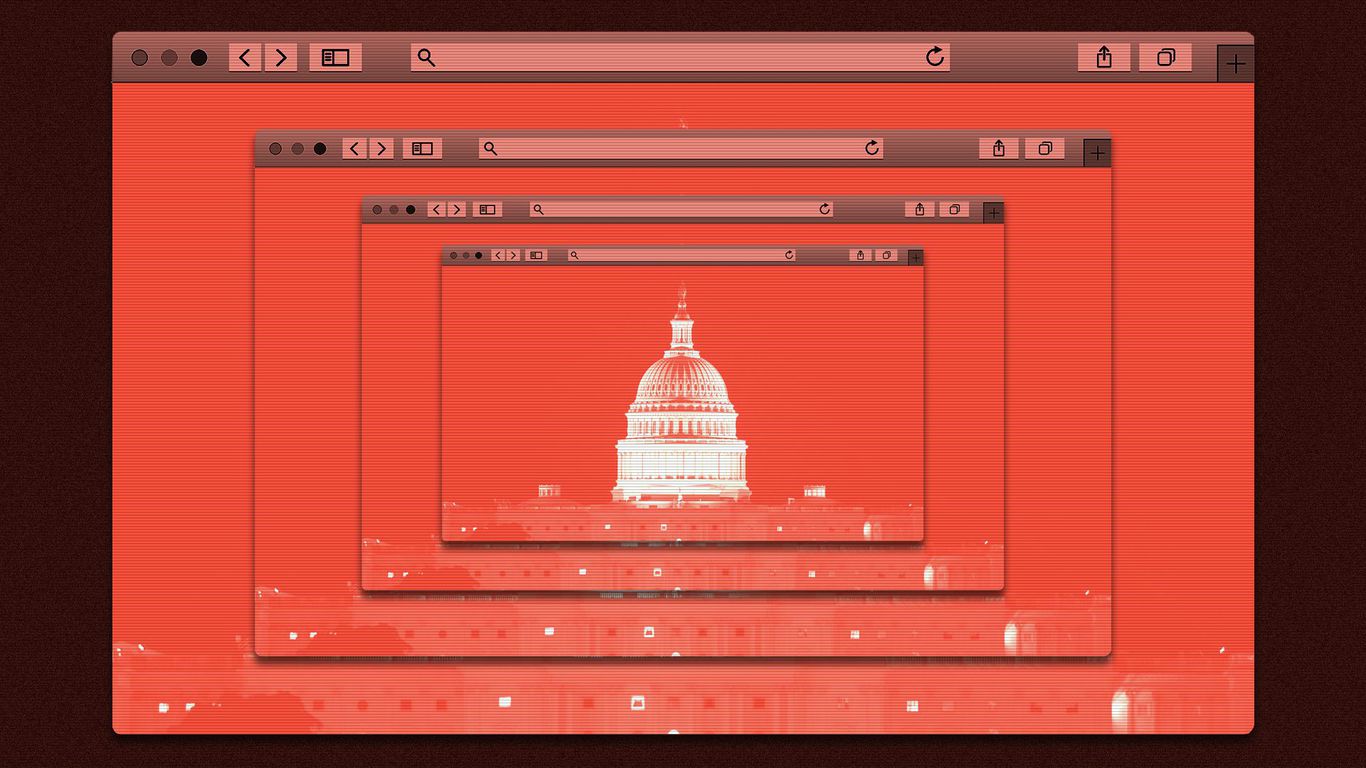New wave of Jan. 6 conspiracy theories

Conspiracy theories about the U.S. Capitol insurrection continue to flood private messaging groups, social networks and even major news outlets one year later.
Why it matters: The lasting echo chamber of misinformation shows the long-term impact the event will have on future elections.
- “These ideologies and animating forces are perhaps as mainstream as ever, and getting play in some of the highest nodes of Republican influence,” said Jared Holt, of the Atlantic Council’s Digital Forensic Research Lab.
- “Even without Trump in the spotlight, this anti-democratic conspiratorial, paranoid style of rhetoric is now central to conservative messaging.”
The big picture: The Capitol siege was a central part of the right-wing narrative around the “Big Lie” — the collection of falsehoods alleging the 2020 election was stolen through voting fraud. The “Big Lie” is now being used to rally conservatives ahead of the 2022 midterms.
- Holt notes that in the wake of mainstream platforms cracking down on bigger conspiracy groups, the organization of extremist movements has decentralized and is now focused on people who are becoming more active in local elections, including school boards.
Driving the news: Although many individuals and groups were kicked off mainstream platforms in the wake of the Capitol siege — which Holt says helped prevent any major follow-up events — right-wing extremists have found plenty of alternative options for convening online.
- “Pretty much all alternative social media sites and conversation platforms have people congregating to discuss Jan. 6 conspiracies, the anniversary and the Big Lie,” said Bryce Webster-Jacobsen, director of intelligence operations at threat intelligence firm GroupSense.
- The alt-right “Oath Keepers” community is active on MeWe, per a report from the Atlantic Council’s Digital Forensic Research Lab. “Proud Boys” leader Enrique Tarrio is active on Parler. “Stop the Steal” founder Ali Alexander frequently posts on Gab.
- New posts on platforms like Patriots.win suggest the “undercover FBI” will be “looking to create false narratives” about candlelight vigils that are being promoted on right-wing forums for the people arrested for participating in the riots, whom they refer to as “political prisoners.”
How it works: Bad actors and conspiracy theorists seed falsehoods on private messaging apps or conservative social apps. That misinformation is tested and iterated before making it to bigger web platforms.
- The narratives that stick often find their way to bigger networks that are less likely to take action on that type of content, like fringe conservative news sites or conservative cable channels.
- A new report from NewsGuard, a service that uses journalists to rate news sites, found that the vast majority (81%) of 113 U.S. news websites that spread falsehoods in the aftermath of the 2020 election continue to spread false claims about the election and the Jan. 6 attack.
Be smart: Far-right and conspiratorial positions are increasingly being wedged into “culture war” debates, often echoed by Fox News, other conservative outlets and members of Congress — which pushes them into the mainstream.
The bottom line: “There’s such division within this country politically and ideologically that people do not want to consume information that does not come from their life and their worldview,” said Rachel Moran, a postdoctoral scholar at the University of Washington’s Information School.
- “There’s a demand for misinformation and so people are always gonna find a way to get it.”


